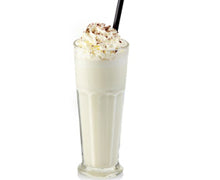
If you don’t think one milkshake can make a difference in your health, the results of a recent study may change your mind. The combination of high fat and high sugar from just one milkshake was enough to trigger the beginnings of heart disease.
Researchers at the Medical College of Georgia reported in the journal Laboratory Investigation that just four hours after drinking a milkshake made from ice cream, heavy whipping cream and whole milk, their otherwise healthy young male volunteers displayed the first signs of heart disease. The blood vessels of the study group showed signs of stiffness and their red blood cells got smaller and became spiky.
"Your red blood cells are normally nice and smooth and beautiful and the cells, after consumption of a high-fat meal, get these spikes on them," said researcher Julia E. Brittain. “Much like huge ice chunks do to a river, these physical changes affect how blood flows. Bad changes occur quickly in these cells, which are exquisitely sensitive to their environment.â€
The combination of the fat and the sugar seemed to be the primary cause in the rapid changes seen in the blood. Volunteers who had three bowls of sugar-coated flakes and no-fat milk equating to the same calorie count as the milkshakes did not experience the same harmful changes to their red blood cells and blood vessels.
Scientists also noticed the presence of myeloperoxidase (MPO), an enzyme expressed by a type of white blood cell that when found in high levels is linked to oxidative stress and heart attack. While the negative symptoms triggered by the milkshake were only temporary, it helps to explain why in rare instances a high-fat meal has been determined to be the trigger for a sudden heart attack.
"The take-home message is that your body can usually handle this if you don't do it again at the next meal and the next and the next," Brittain said.
"Myeloperoxidase levels in the blood are directly implicated in heart attack," says Dr. Neal L. Weintraub. "This is a really powerful finding. We see this hopefully as a public service to get people to think twice about eating this way."
The milkshakes had about 80 grams of fat and 1,000 calories, while the cereal meal also contained about 1,000 calories but very little fat. Each option was individually tweaked to make sure all participants had the same amount of fat relative to their body weight.



